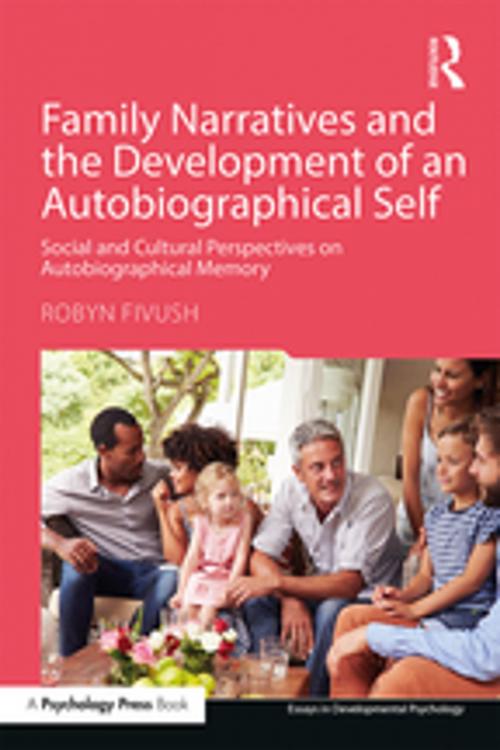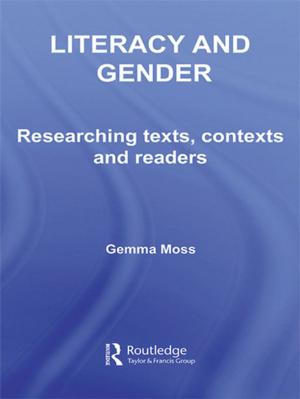Family Narratives and the Development of an Autobiographical Self
Social and Cultural Perspectives on Autobiographical Memory
Nonfiction, Health & Well Being, Psychology, Developmental Psychology| Author: | Robyn Fivush | ISBN: | 9780429647260 |
| Publisher: | Taylor and Francis | Publication: | February 7, 2019 |
| Imprint: | Routledge | Language: | English |
| Author: | Robyn Fivush |
| ISBN: | 9780429647260 |
| Publisher: | Taylor and Francis |
| Publication: | February 7, 2019 |
| Imprint: | Routledge |
| Language: | English |
Stories are central to our world. We form our families, our communities, and our nations through stories. It is through stories of our everyday experiences that each of us constructs an autobiographical self, a narrative identity, that confers a sense of coherence and meaning to our individual lives. In this volume, Robyn Fivush describes how this deeply personal autobiographical self is socially and culturally constructed.
Family Narratives and the Development of an Autobiographical Self demonstrates that, through participating in family reminiscing, in which adults help children learn the forms and functions of talking about the past, young children come to understand and evaluate their experiences, and create a sense of self defined through individual and family stories that provide an anchor for understanding self, others, and the world. Fivush draws on three decades of research, from her own lab and from others, to demonstrate the critical role that family stories and family storytelling play in child development and outcome.
This volume is essential reading for students and researchers interested in psychology, human development, and family studies.
Stories are central to our world. We form our families, our communities, and our nations through stories. It is through stories of our everyday experiences that each of us constructs an autobiographical self, a narrative identity, that confers a sense of coherence and meaning to our individual lives. In this volume, Robyn Fivush describes how this deeply personal autobiographical self is socially and culturally constructed.
Family Narratives and the Development of an Autobiographical Self demonstrates that, through participating in family reminiscing, in which adults help children learn the forms and functions of talking about the past, young children come to understand and evaluate their experiences, and create a sense of self defined through individual and family stories that provide an anchor for understanding self, others, and the world. Fivush draws on three decades of research, from her own lab and from others, to demonstrate the critical role that family stories and family storytelling play in child development and outcome.
This volume is essential reading for students and researchers interested in psychology, human development, and family studies.















